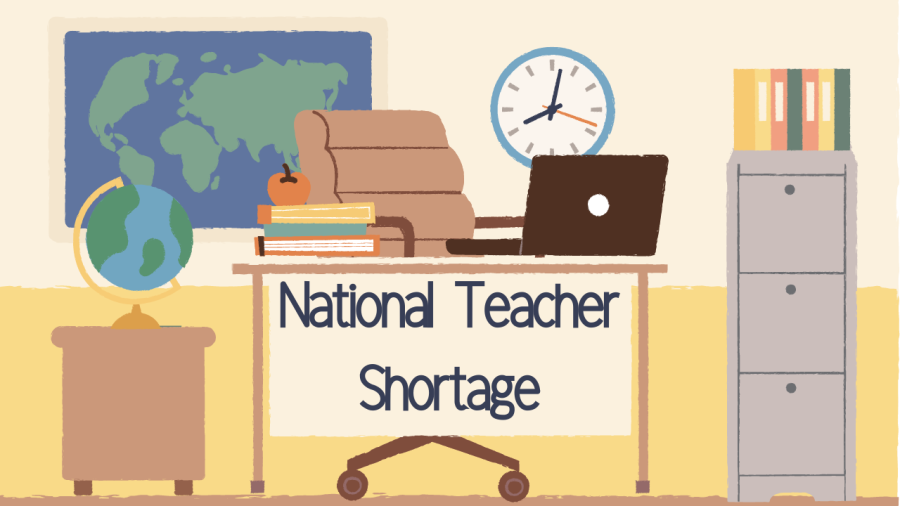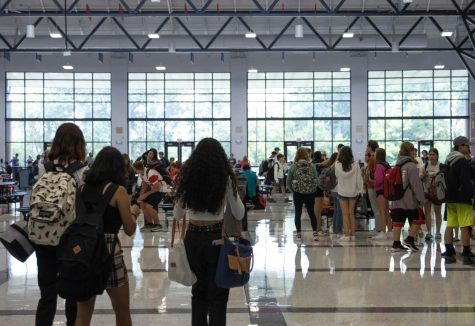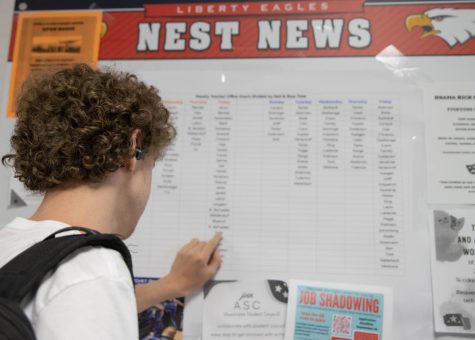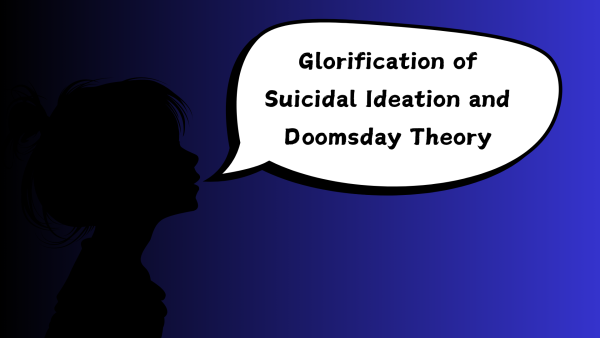By the Numbers: Why are Teachers Leaving the Classroom?
A mass exodus of educators ensues following past strenuous academic years
This academic year, an unforeseen amount of teachers are packing up and leaving their classrooms for good.
Managing the aftershock of COVID policies, book bans, and a looming fear of mass gun violence are merely a handful of stressors that teachers have endured in recent academic years. Even from an onlooker’s perspective, it’s easy to see that K-12 employees have been put through the wringer – so much so that 44% reported “always” or “very often” feeling burned out in a survey conducted earlier this year. This figure further explains why a baffling 55% of U.S. educators are thinking of leaving their job.
English teacher Mrs. Steinbruegge described factors of which she believes have contributed to the national shortage.
“There’s an increased expectation for teachers to be not just teaching content but also healthcare professionals, custodians in their classrooms cleaning desks and floors, and not getting necessary support from administration.” Steinbruegge continued, “Although we don’t have that issue here because we’ve got a really solid support base with our principals, but I know a lot of other schools don’t have that.”
While the new school year is in full swing and multiple states are facing widespread teacher shortages, there is a discussion that desperately needs to be had. Why exactly are teachers leaving the classroom, and what actions must be taken to resolve the shortage?
78% of educators cite low pay as a serious problem.
It’s no secret that education remains one of the most gravely underpaid professions in the United States. Missouri has one of the lowest starting teacher salaries in the nation, clocking in at $32,970 on average. The mountain of responsibility granted to educators during COVID’s prime has only proven how they are not paid enough to deal with such an abstract level of toil. This is a primary example as to why we need to better value our educators’ time and effort. The fix for this issue is simple: pay teachers better across the board! It’s long past due for all educators to be given a stable wage that is fully compensatory while also allowing them to live comfortably.
76% of educators report that lack of parental and public respect is a significant issue.
An average teachers’ workday is jammed with keeping children alive, well, and engaged in learning. Yet the mob mentality of angry parents and politicians who fear-monger the existence of a “woke agenda” in public schools, occasionally going as far as to harass teachers, administrators and school board members, is nothing short of detrimental. How often have you heard, “teachers are trying to indoctrinate our children!” Or, “teachers get summers off, their job isn’t that hard.” These statements have existed for ages, yet in recent years debates surrounding what teachers can and cannot do in their classrooms have been broadcasted locally and nationwide. There’s an increased expectation for teachers to be not just teaching content but also healthcare professionals, custodians in their classrooms cleaning desks and floors, and not getting necessary support from administration. — Mrs. Steinbruegge
“There’s a lot of outrage within communities blaming teachers for things not going exactly right, especially during the pandemic.” Steinbruegge commented, “I think teachers are shouldering a lot more burden.”
For instance, Florida’s ‘Don’t Say Gay’ bill banned discussions of sexual orientation within K-3 classrooms that are “not age-appropriate or developmentally appropriate for students in accordance with state standards.” Additionally, many districts across the country joined the book banning frenzy last school year, a movement that went after literature containing themes of racism, drugs, profanity and sexual abuse, among other harsh themes. This current academic year, Missouri passed a law that deemed distributing “sexually explicit” literature a misdemeanor. Librarians, teachers, and other school officials may now face up to a year of jail time, or hefty fines if they’re found guilty of breaking this extremely subjective piece of legislation. Undeniably, it takes a toll on educators when they’re continuously disrespected by the general public and observed under a microscope. This rhetoric is not only damaging to them, but to the public education system as a whole.
Only 10% of educators would recommend the profession to a young adult.
Of those surveyed, 22% of teachers mentioned that insufficient compensation and benefits further contribute to this statistic. If our educators are so unhappy with current working conditions, how can we expect them to recommend this profession to others? In turn, how can we ever expect to resolve this shortage?
In an episode of ‘Teachers Off Duty,’ a podcast run by K-12 educators, the hosts discuss personal harrowing experiences which led some to quit their position; along with education horror stories from anonymous teachers across the nation. This intimate episode features many prominent discussions in regards to compromised teacher mental health, unsupportive administration and student behavioral issues.
Educators’ voices must be uplifted during these trying times, and there must be a conscious effort made to meet teachers halfway. Educators are here to help children, and that has never changed. It appears painfully obvious that treating teachers with respect, compassion and empathy while providing the resources needed for their duties is the solution to this shortage. Be kind to your teachers, you never know who’s pouring from their own cup even though it’s empty.
Source: NEA















